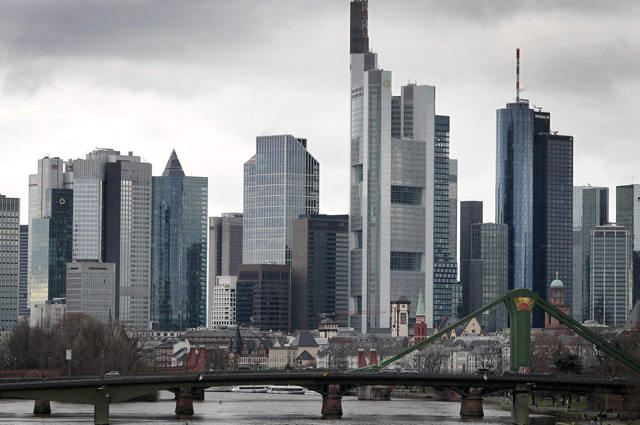You are here
German economy to shrink again in 2024 — think tanks
By AFP - Sep 28,2024 - Last updated at Sep 28,2024

The skyline of Frankfurt am Main, western Germany, with the Main Tower with Helaba's head office and the Commerzbank Tower on December 29, 2020 (AFP file photo)
BERLIN — Germany's economy is expected to shrink slightly in 2024, leading economic institutes said on recently, as the traditional manufacturing powerhouse continues to stagnate.
Output in Europe's largest economy will decline by 0.1 per cent this year, five think tanks said in a joint statement, after it shrank by 0.3 per cent in 2023.
The new figure was a small but significant downgrade on the institutes' previous estimate of 0.1 per cent growth for 2024, made earlier this year.
"The German economy has been stagnating for more than two years," the institutes — DIW, Ifo, IfW Kiel, IWH and RWI — said in the joint statement.
"A slow recovery is likely to set in next year, but economic growth will not return to its pre-coronavirus trend for the foreseeable future," they said.
The institutes forecast growth to reach 0.8 per cent in 2025, a downward revision on their previous estimate of 1.4 per cent.
For 2026, they predicted the German economy to grow by 1.3 per cent.
The general downturn was driven by "structural change" weighing on the economy, DIW's head of forecasting Geraldine Dany-Knedlik said in the statement.
Decarbonisation and demographic change as well as stronger competition from key market China were "dampening the long-term growth prospects", Dany-Knedlik said.
The effects were being felt particularly keenly in Germany's key manufacturing sector, the institutes said.
Manufacturing industries were hard hit by the increase in energy costs, following the Russian invasion of Ukraine in 2022, and a sharp rise in inflation.
The rise of competitors in China making high-quality goods for export is "displacing German exports on world markets", the institutes said.
A tentative recovery next year would be "driven by a revival in private consumption" on the back of rising incomes, they said.
"The upturn in key sales markets, such as neighbouring European countries, will support German foreign trade," they said.
Related Articles
BERLIN — German economic institutes on Thursday issued pessimistic growth forecasts for 2025 as Europe's biggest economy faces political ris
FRANKFURT, Germany — The German economy is expected to barely grow this year, leading economic institutes said on Wednesday, as weak demand
BRUSSELS — Economic growth in the eurozone contracted in the third quarter, data showed on Tuesday, hit by the European Central Bank's (ECB'


















